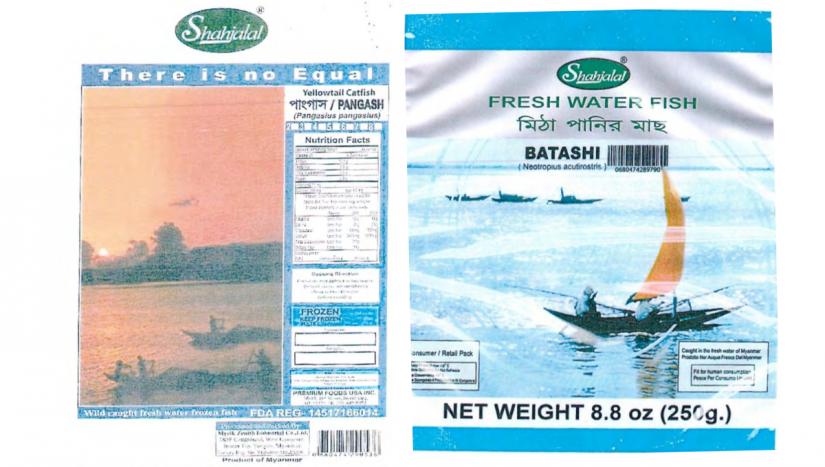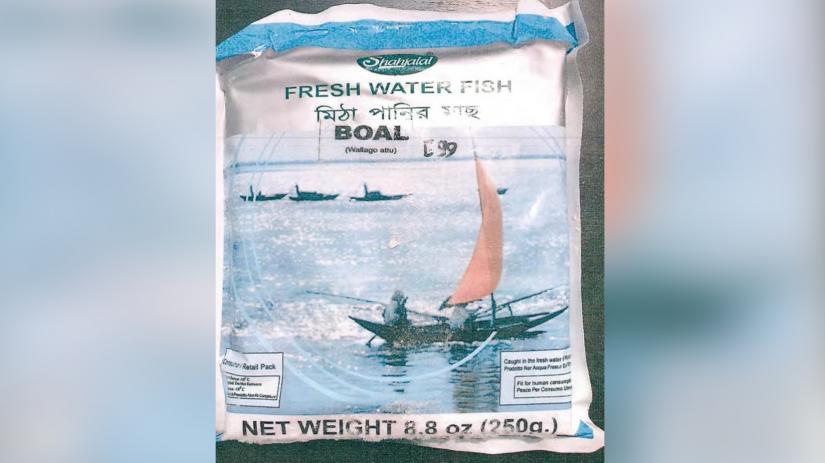 The US government’s food safety agency has once again ordered a recall of more than 40,000 pounds of fish imported from Bangladesh and Myanmar, taking the total to more than 171,000 pounds recalled since last July.
The US government’s food safety agency has once again ordered a recall of more than 40,000 pounds of fish imported from Bangladesh and Myanmar, taking the total to more than 171,000 pounds recalled since last July.
The government’s Food Safety and Inspection Services says the two countries do not have the eligibility to export catfish products, popularly known as Maangur, Boal. Singhi, Pabda and a few others, to the United States.
The recall order’s impact has been felt mainly by a Bangladeshi-American owned wholesale chain, Primary Foods USA - a leading importer, distributor and wholesaler of Bangladeshi fish, vegetables and snacks in the US.
“We were asked to submit invoices last time and this time as well, which we have done. They have found nothing so far,” says K M Chowdhury, manager of Premium Foods USA.
According to the US government agency, the fish was not presented for import re-inspection into the United States. Premium Foods USA shipped the recalled products to retail locations in Colorado, Connecticut, Florida, Georgia, Illinois, Michigan, New Jersey, New York and Pennsylvania.
Premium Foods USA shipped the recalled products to retail locations in Colorado, Connecticut, Florida, Georgia, Illinois, Michigan, New Jersey, New York and Pennsylvania.
“FSIS is concerned that some product may be in consumers’ freezers. Consumers who have purchased these products are urged not to consume them. These products should be thrown away or returned to the place of purchase,” according to the recall notice.
However, the recall notice also goes on to add that there have been no reports of adverse reactions due to consumption of these products.
In fact, most of the fish on the recall list may already have been consumed by the customers.
“We have been consuming this fish for thousands of years without any problems. But this is sending the wrong message to the community,” Mr Chowdhury.
There’s a huge demand for this fish in the Bangladeshi community in the United States and more than 20 percent of the wholesale group’s business depends on these.
“People also buy additional things when they come shopping for these and this is harming the overall business,” says Chowdhury.
He says the impact is being felt by fishermen and exporters in Bangladesh too, as nobody is importing these anymore.
Chowdhury is hopeful of some resolution soon as business representatives are in talks with the US government.
“Till then, we are trying to survive somehow,” he says.
Also read
Moustached Bangladeshi Maangur fish unwelcome in the US!






